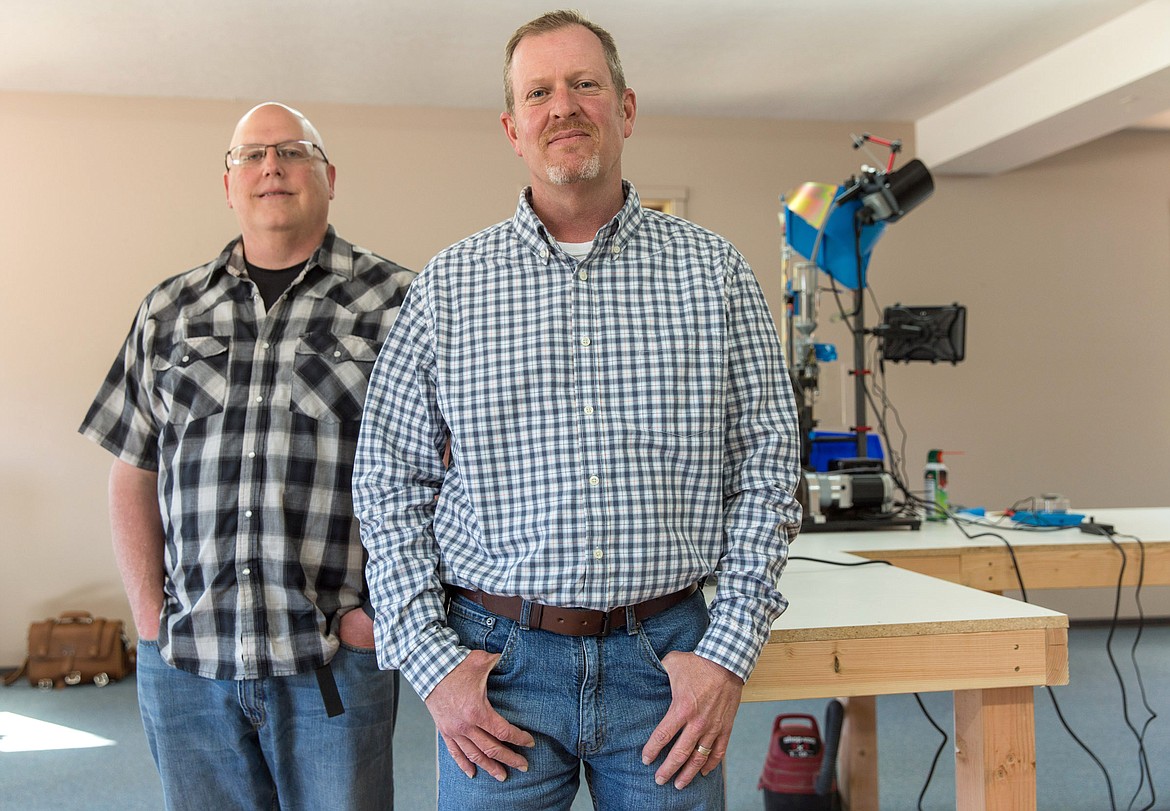Libby church targets jobs creation with ammo business
In 2015, after seeing too many people reluctantly leave Lincoln County to find work elsewhere, Minister Phil Alspaw and 15 or so other members of Libby Christian Church sat around a conference room table.
“We started kicking around what the church might do to change that dynamic and bring jobs to Lincoln County,” Alspaw said.
Several hours of economic development talk followed. The group’s aim was to establish a manufacturing ministry. Alspaw said they started with caskets — and ended with bullets.
With a laugh Alspaw declined to say what other ideas they tossed around in between, but he said the group sought a product that would capture the interest of Libby.
“Bullets speak to Libby,” Alspaw said, and with ammunition hard to come by at the time they saw a worthy business opportunity.
It soon proved ammunition wasn’t the only item that was hard to come by. Alspaw said when they looked to churches nationwide for a way to run a for-profit business as a nonprofit organization, they found several churches that did business in services but none in manufacturing.
“We wanted to see if there was a pattern to follow,” he said. “But we have not found it.”
So the group proceeded to feel its way forward. It hit some dead ends along the way, Alspaw said, until “God brought Chad (Collins) on the scene.”
Collins, a member of the church who hadn’t been tuned into the ammunition ministry, was recommended to Alspaw by someone who knew of his entrepreneurial background in everything from finance to construction to car dealerships. Seeing a great opportunity in the ministry’s intention, Collins came on board in July 2016 with “the marching orders to take this where it needs to go,” Alspaw said.
Ammunition sales “is a tremendous market,” Collins said, and Kootenai River Ammunition, the company name they settled on, is “looking to have our piece of that.”
Collins remains the sole employee, a situation he hopes to rectify once the company begins selling ammunition via a not-yet-launched website sometime in June if all goes as planned. They’ll focus first on web sales, Collins said.
Kootenai River Ammunition’s inaugural product will be a .223-caliber bullet that Collins described as “a very solid, middle of the road round” manufactured from made-in-America components. The first batch has been manufactured, tested and packaged by a group of volunteers and financed through church funds and private donations.
Collins hopes that within a month the company can start increasing its product mix and hiring paid employees. He wouldn’t project sales or production levels, but is confident in the company’s ability to quickly ramp-up production in the event the bullets fly off the shelves of the company’s facility on Highway 2 in Libby.
“Not a whole lot needs to be done to do that,” he said. “We could be in a high-production mode really quickly.”
The company has room to grow into. Headquartered in a building that once housed a floor covering business, its 7,000 square-foot space is mostly empty but for a desk, some chairs, boxes containing packaging and a single automated reloading machine. Collins envisions filling the space with people working in production, sales and marketing and other roles the company will identify as it progresses.
“When it’s up and running it’s going to require a number of people with different abilities,” Alspaw said, expressing confidence in the local employee pool to fulfill its staffing needs.
Though it hasn’t launched a website yet, Kootenai River Ammunition already has a popular Facebook page. Collins and Alspaw said it received about 20,000 page views in its first week. The response so far has mostly been positive, Alspaw said, which he acknowledged was somewhat surprising given that a church manufacturing bullets is a “volatile subject.”
He said he believes people support their ministry’s story.
“We care about where we live and the people we live around,” he said. “And for the most part we feel God gave us this vision and we had to run with it.”
Some of the people who’ve visited the Facebook page have expressed interest in working for the company, Alspaw said, while a church in Missouri hopes to follow its example and create jobs by manufacturing mattresses.
“If we can create a template, we’d love to give it away,” Alspaw said.

